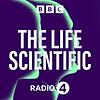
BBC Radio 4 tarafından hazırlanan The Life Scientific
BBC Radio 4
Kategoriler: Bilim ve Tıp
Son bölümü dinle:
As the famous frog once said, it's not easy being green. And when it comes to decarbonising industry, indeed, reducing emissions of all sorts, the task is a complex one.
Fossil fuels are used to manufacture some of mankind’s most ubiquitous products, from plastics to cement to steel; and even in areas where we’re trying to improve our footprint, there are repercussions. Mining lithium for electric car batteries isn’t exactly without impact. Add to the mix stories of corporations prioritising profits, and governments focusing on short-term popular policies – and it would be easy to feel disheartened.
Professor Anna Korre says her role is to be the champion of science in this debate: providing clear evidence to help reduce environmental impacts, while allowing vital production processes to continue.
Anna is an environmental engineer at Imperial College London and Co-Director of the university’s Energy Futures Lab. Her work has led to a risk model that's now used in mining operations around the world – and her current research into sub-surface CO2 storage could hold the key to decarbonising British industry. But as she tells Jim Al-Khalili, social and familial expectations when she was growing up in her native Greece meant her succesful career in engineering very nearly didn't happen...
Presented by Jim Al-Khalili Producer by Lucy Taylor
Önceki bölümler
-
327 - Anna Korre on capturing carbon dioxide and defying expectationsTue, 24 Sep 2024
-
326 - Rosalie David on the science of Egyptian mummiesTue, 17 Sep 2024
-
325 - Peter Stott on climate change deniers and Italian inspirationTue, 10 Sep 2024
-
324 - Ijeoma Uchegbu on using nanoparticles to transform medicinesTue, 03 Sep 2024
-
323 - Darren Croft on killer whale matriarchs and the menopauseTue, 27 Aug 2024
-
322 - Bill Gates on vaccines, conspiracy theories and the pleasures of pickleballTue, 20 Aug 2024
-
321 - Kip Thorne on black holes, Nobel Prizes and taking physics to HollywoodTue, 06 Aug 2024
-
320 - Vicky Tolfrey on parasport research and childhood dreams of the OlympicsTue, 30 Jul 2024
-
319 - Dawn Bonfield on inclusive engineering, sustainable solutions and why she once tried to leave the sector for goodTue, 23 Jul 2024
-
318 - Raymond Schinazi on revolutionising treatments for killer virusesTue, 16 Jul 2024
-
317 - Janet Treasure on eating disorders and the quest for answersTue, 09 Jul 2024
-
316 - Anne Child on Marfan syndrome and love at first sightTue, 02 Jul 2024
-
315 - Conny Aerts on star vibrations and following your dreamsTue, 25 Jun 2024
-
314 - Mike Edmunds on decoding galaxies and ancient astronomical artefactsTue, 23 Apr 2024
-
313 - Hannah Critchlow on the connected brainTue, 16 Apr 2024
-
312 - Molly StevensTue, 15 Nov 2011
-
311 - Colin BlakemoreTue, 08 Nov 2011
-
310 - Sir Michael MarmotTue, 01 Nov 2011
-
309 - Steven PinkerTue, 18 Oct 2011
-
308 - Paul NurseTue, 11 Oct 2011
-
307 - Fiona Rayment on the applications of nuclear for net zero and beyondTue, 09 Apr 2024
-
306 - Nick Longrich on discovering new dinosaurs from overlooked bonesTue, 02 Apr 2024
-
305 - Sheila Willis on using science to help solve crimeWed, 27 Mar 2024
-
304 - Sir Charles Godfray on parasitic wasps and the race to feed nine billion peopleTue, 19 Mar 2024
-
303 - Jonathan Van-Tam on Covid communication and the power of football analogiesTue, 12 Mar 2024
-
302 - Michael Wooldridge on AI and sentient robotsTue, 19 Dec 2023
-
301 - Mercedes Maroto-Valer on making carbon dioxide usefulTue, 12 Dec 2023
-
300 - Sir Harry Bhadeshia on the choreography of metalsTue, 05 Dec 2023
-
299 - Cathie Sudlow on data in healthcareTue, 28 Nov 2023
-
298 - Sir Michael Berry on phenomena in physics' borderlandsTue, 21 Nov 2023
-
297 - Professor Sarah Harper on how population change is remodelling societies.Tue, 14 Nov 2023
-
296 - Sarah Blaffer Hrdy on human evolution and parenthoodTue, 07 Nov 2023
-
295 - Edward Witten on 'the theory of everything'Tue, 31 Oct 2023
-
294 - Alex Antonelli on learning from nature's biodiversity to adapt to climate changeTue, 19 Sep 2023
-
293 - Paul Murdin on the first ever identification of a black holeTue, 12 Sep 2023
-
292 - Bahija Jallal on the biotech revolution in cancer therapiesTue, 05 Sep 2023
-
291 - Sir Colin Humphreys on electron microscopes, and the thinnest material in the worldTue, 29 Aug 2023
-
290 - Chris Barratt on head-banging sperm and a future male contraceptive pillTue, 22 Aug 2023
-
289 - Gideon Henderson on climate ‘clocks’ and dating ice agesTue, 15 Aug 2023
-
288 - Deborah Greaves on wave power and offshore renewable energyTue, 08 Aug 2023
-
287 - Harald Haas on making waves in light communicationTue, 27 Jun 2023
-
286 - Anne Ferguson-Smith on unravelling epigeneticsTue, 20 Jun 2023
-
285 - Anne-Marie Imafidon on fighting for diversity and equality in scienceTue, 13 Jun 2023
-
284 - Bruce Malamud on modelling risk for natural hazardsTue, 06 Jun 2023
-
283 - Gillian Reid on making chemistry countTue, 30 May 2023
-
282 - Andre Geim on levitating frogs, graphene and 2D materialsTue, 23 May 2023
-
281 - Julie Williams on Alzheimer’s diseaseTue, 28 Mar 2023
-
280 - James Jackson on understanding earthquakes and building resilienceTue, 21 Mar 2023
-
279 - Marie Johnston on health psychology and the power of behavioural shiftsTue, 14 Mar 2023
-
278 - Julia King on manipulating metals and decarbonising transportTue, 07 Mar 2023























